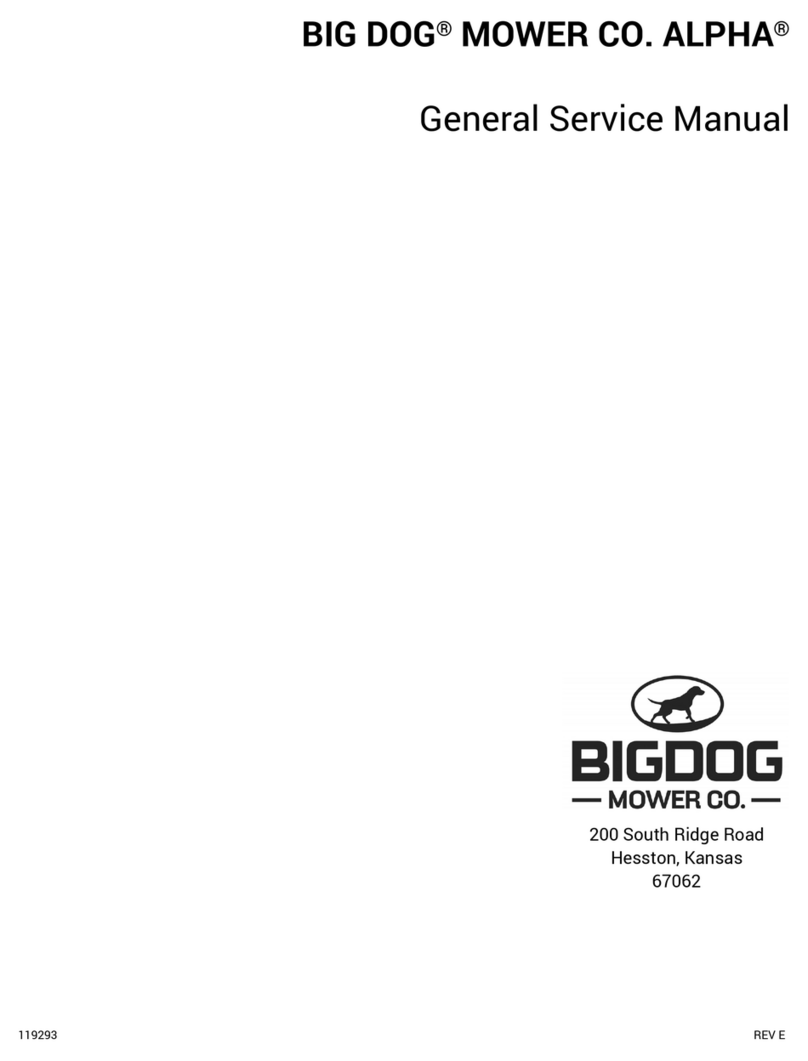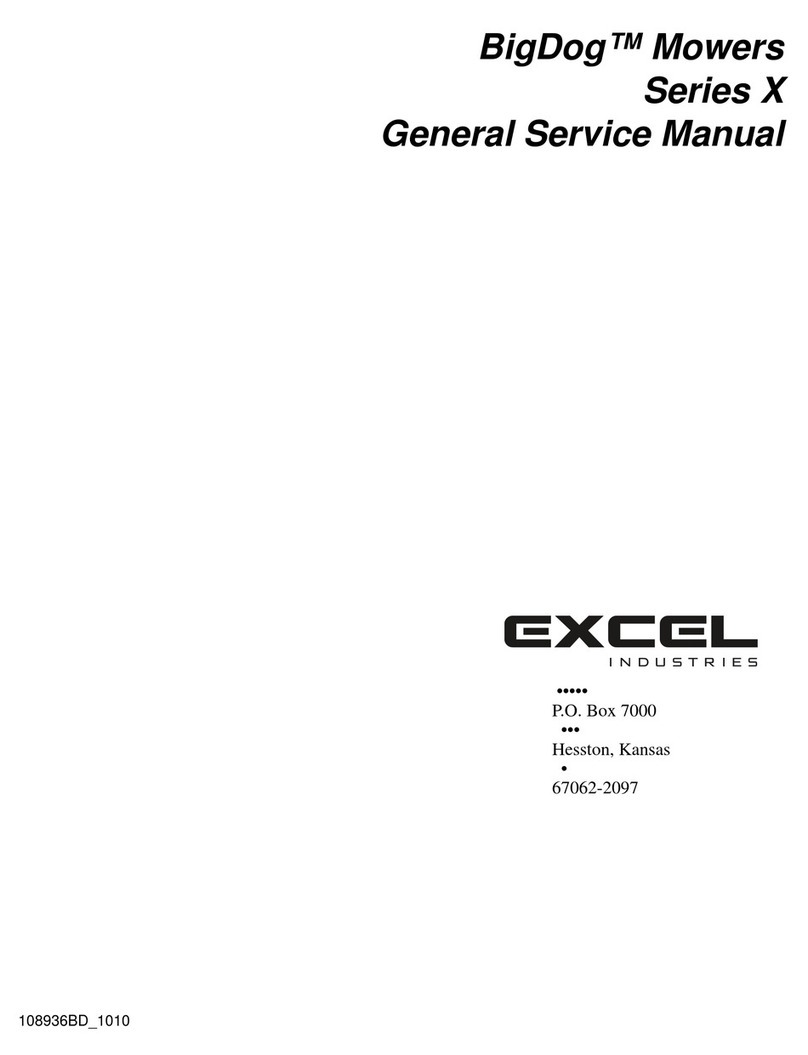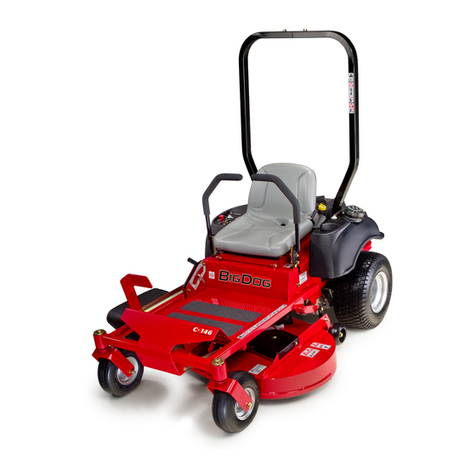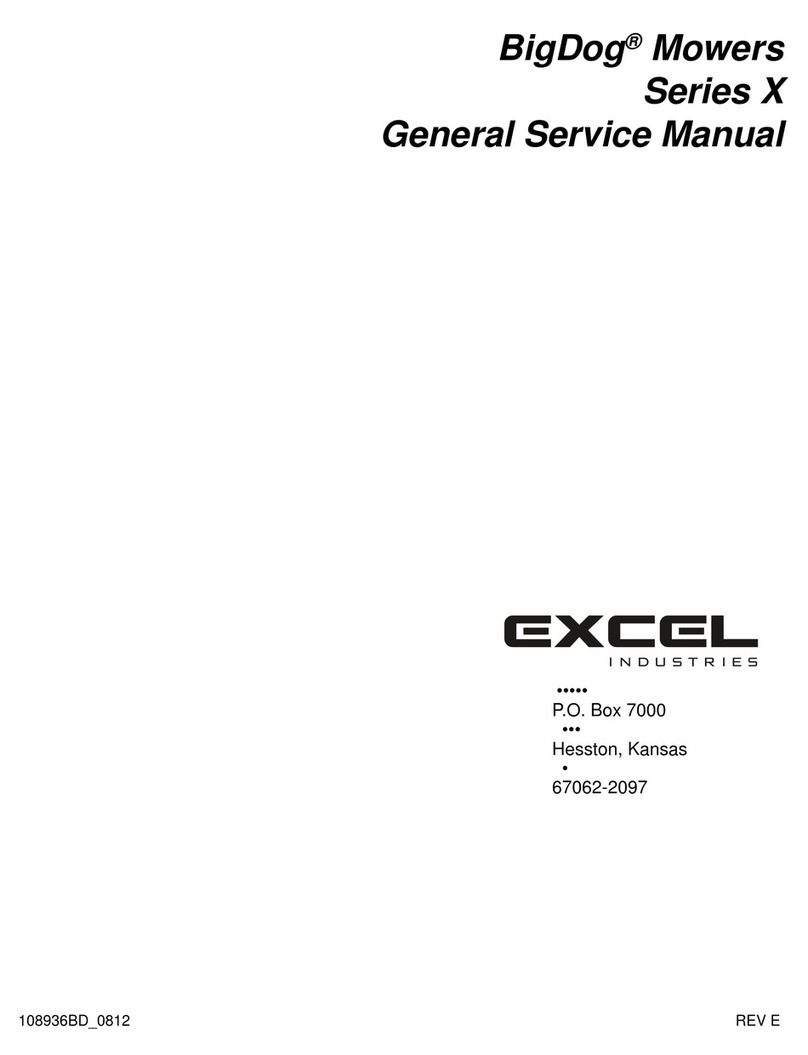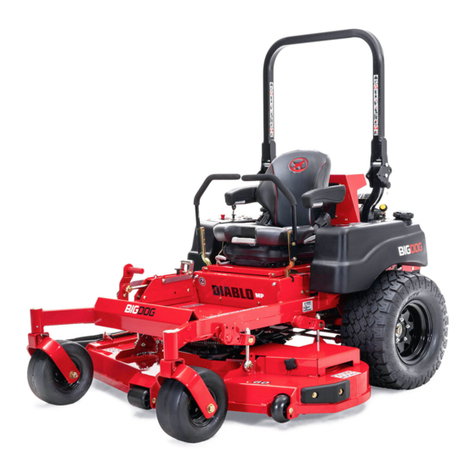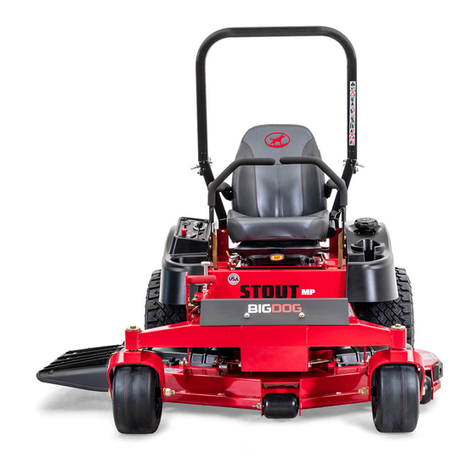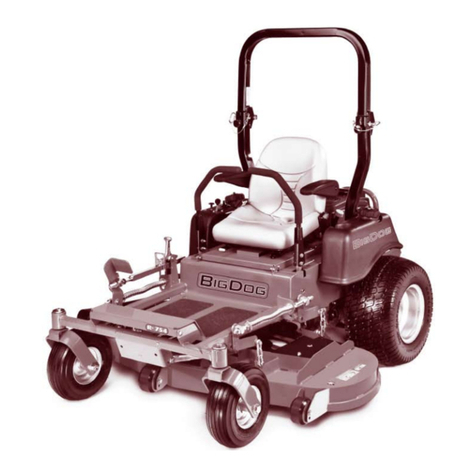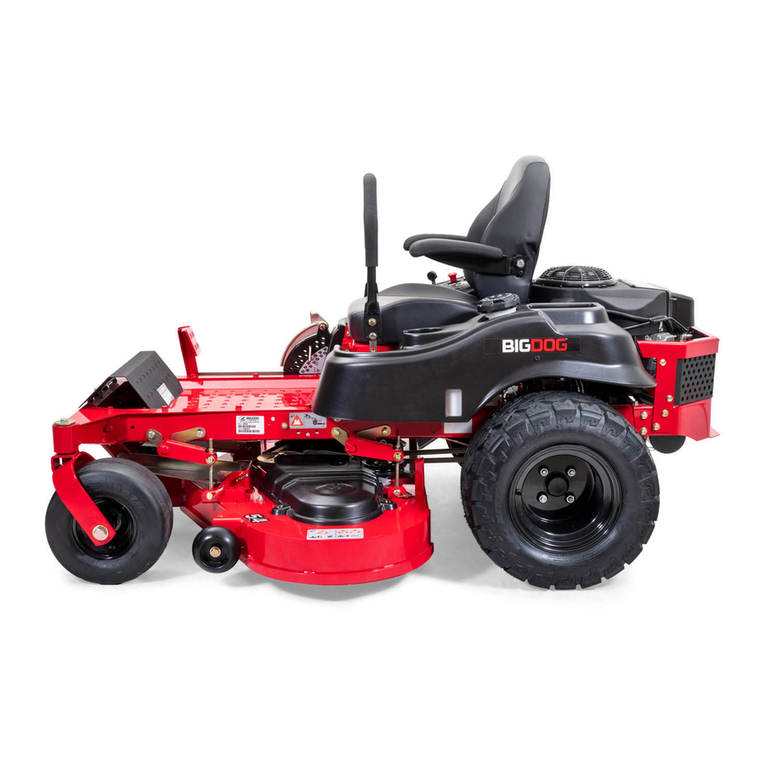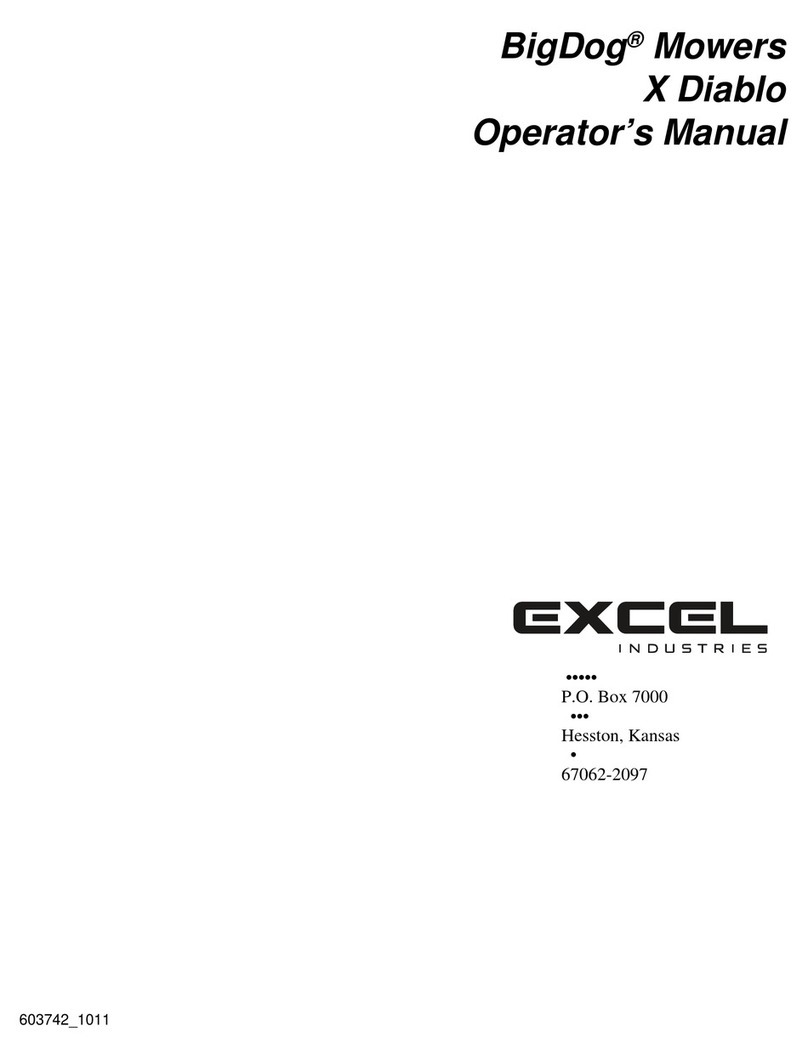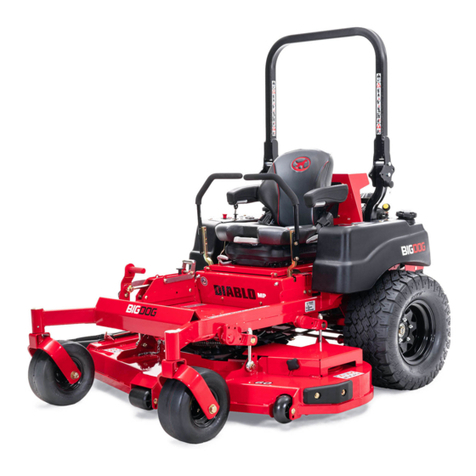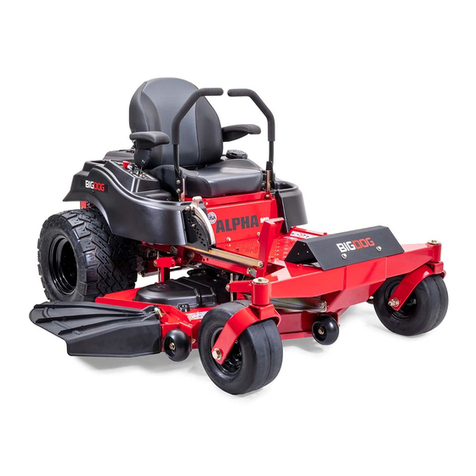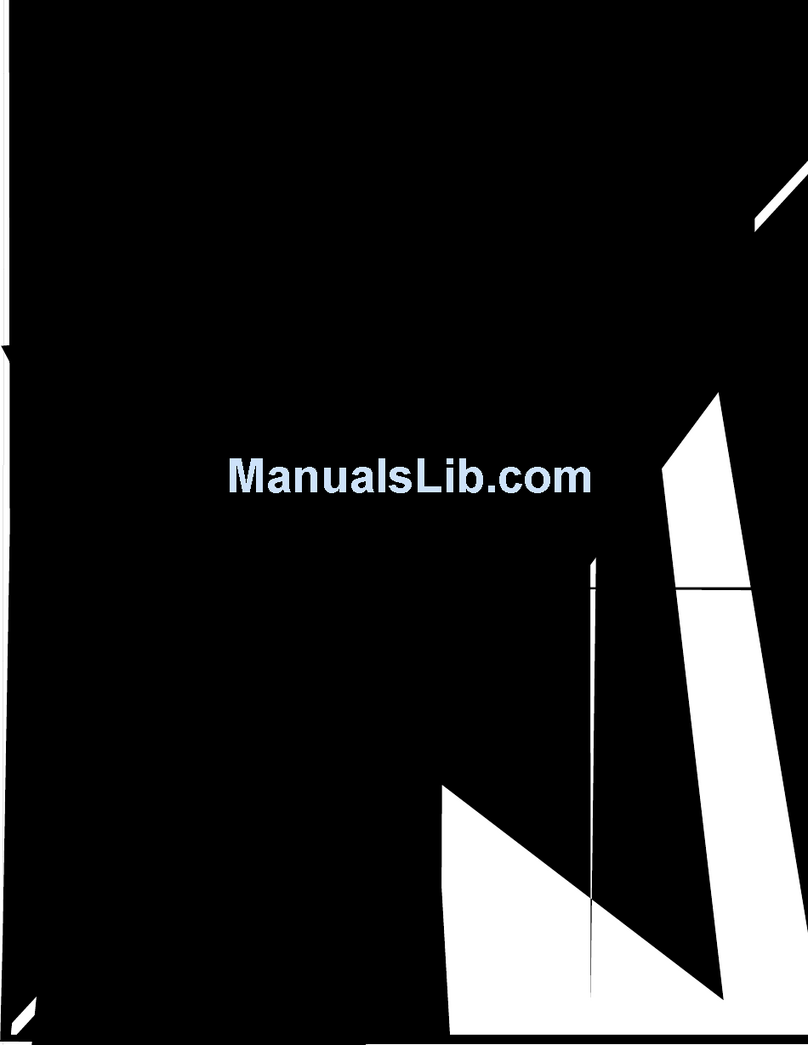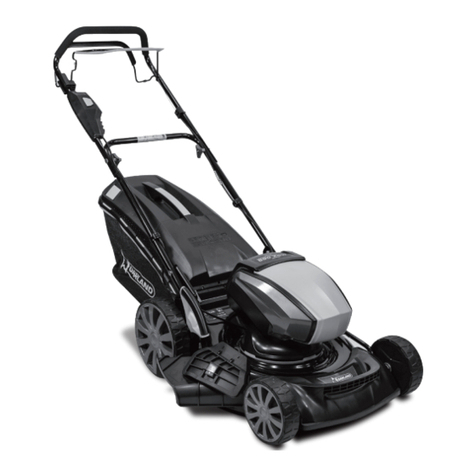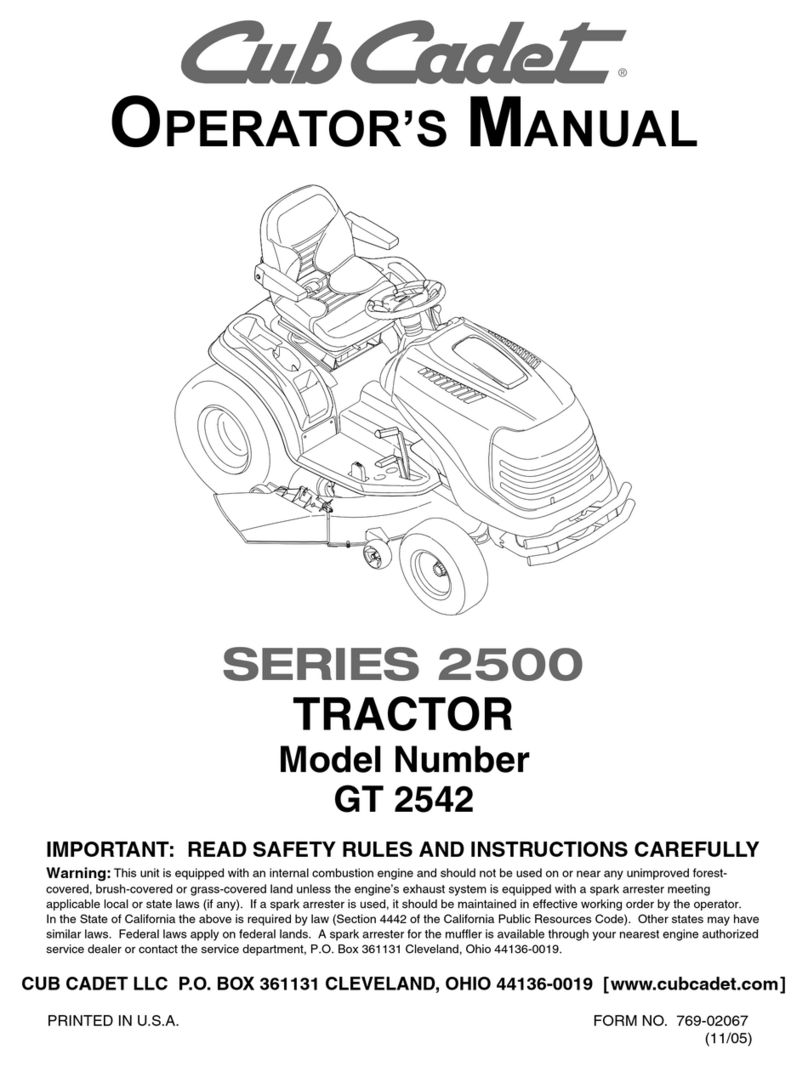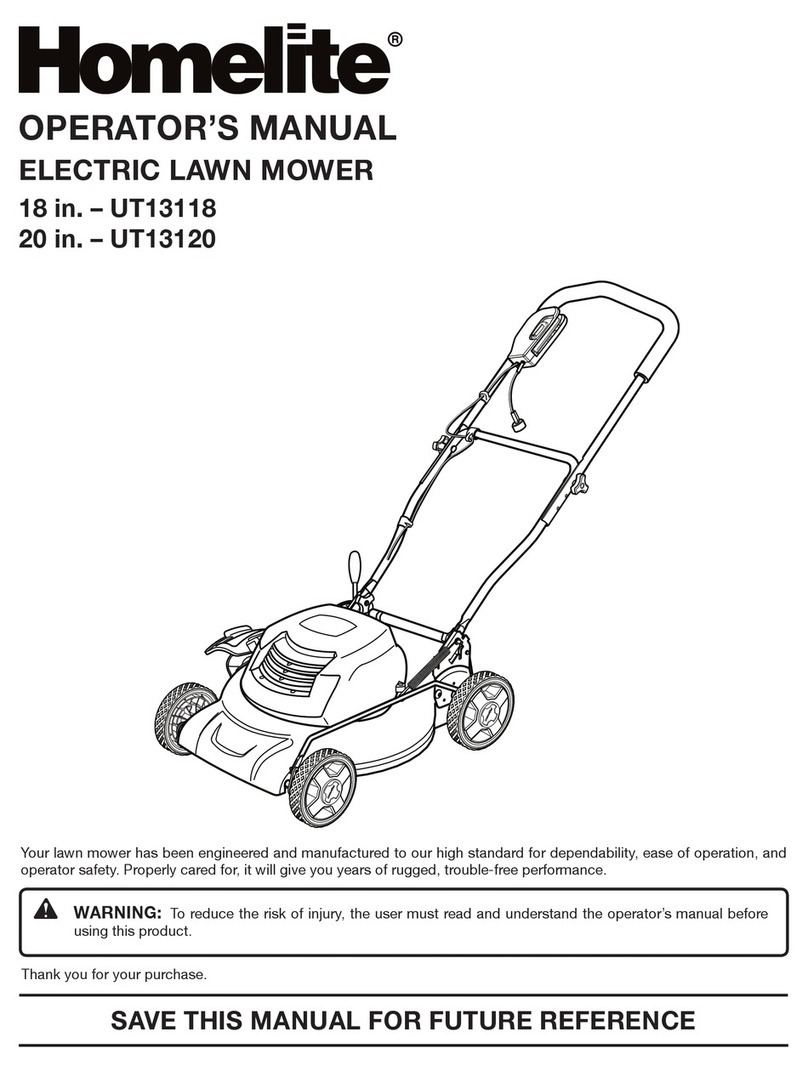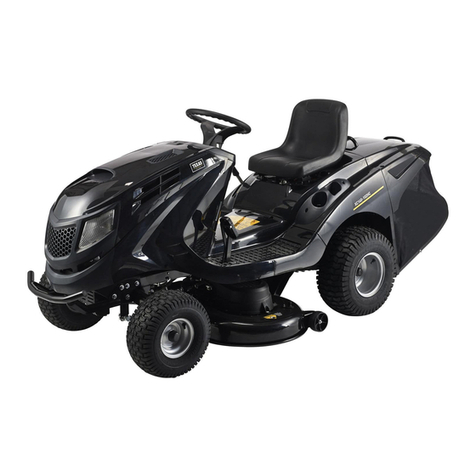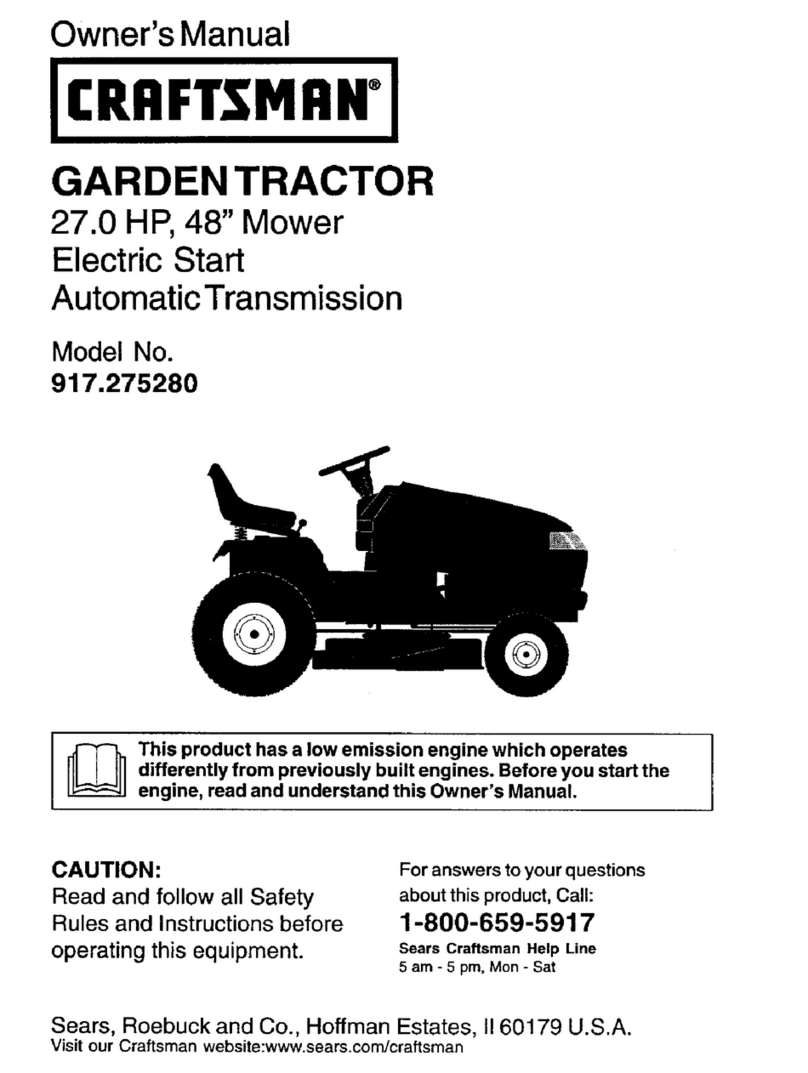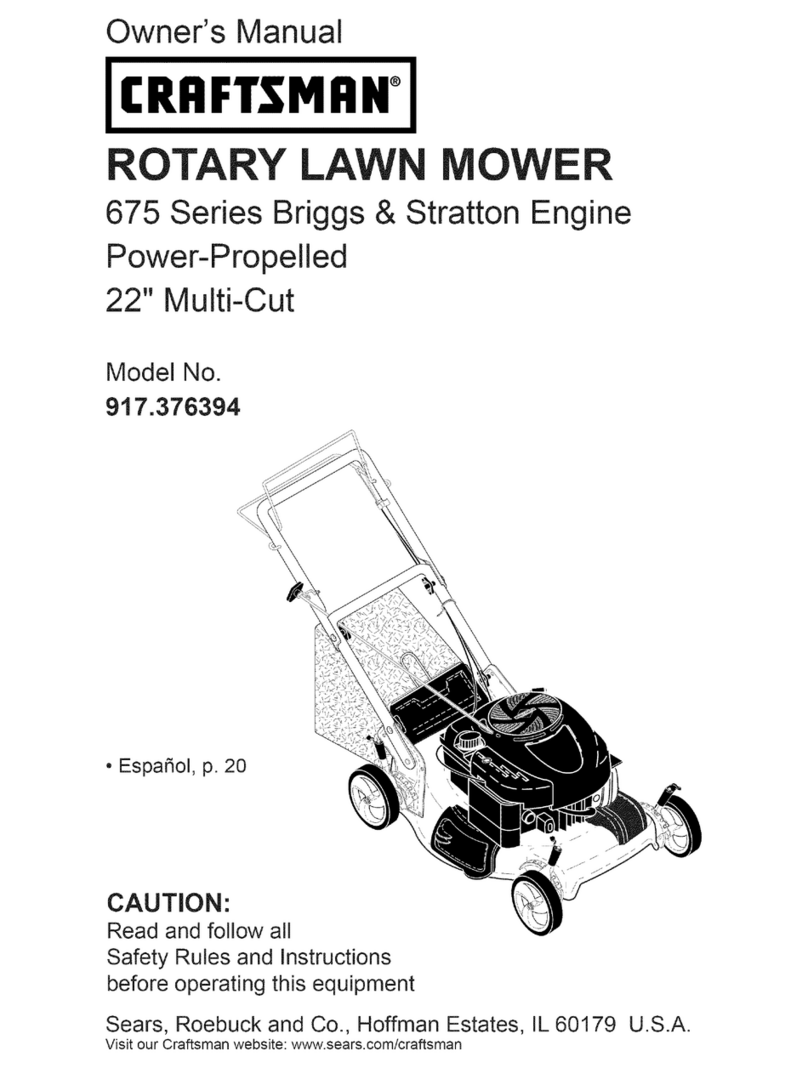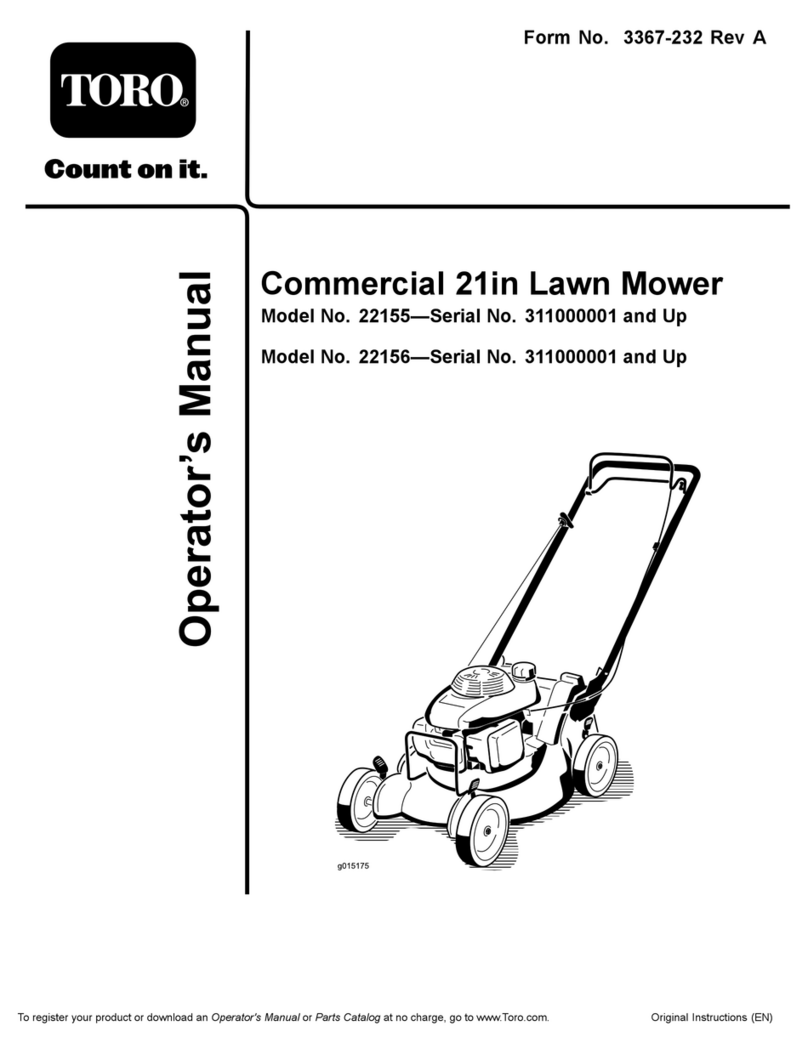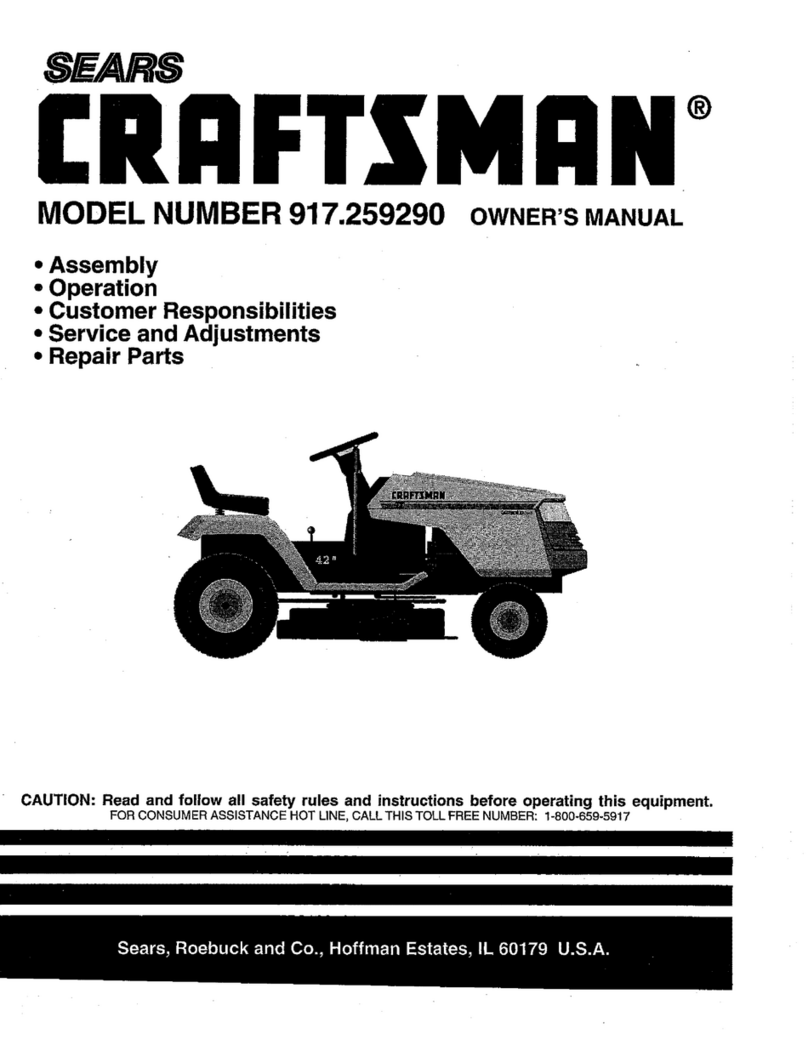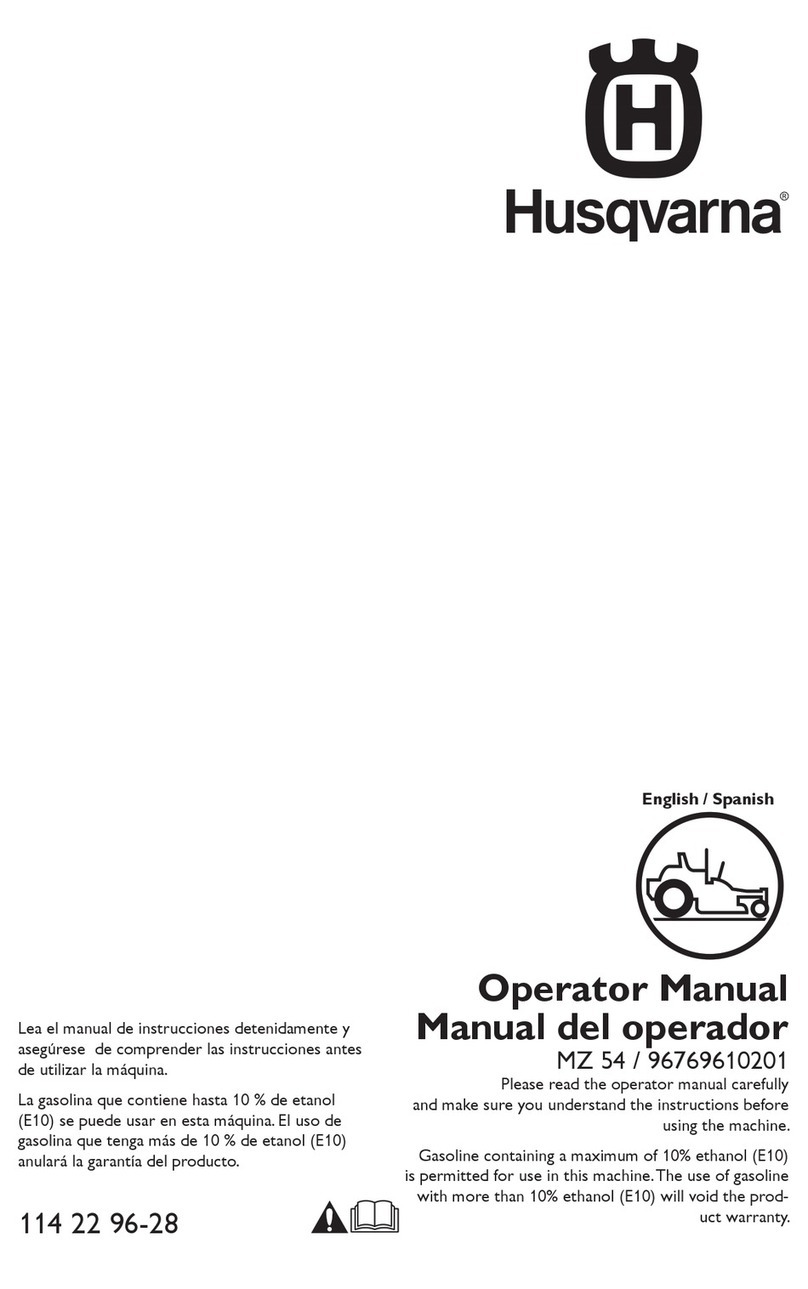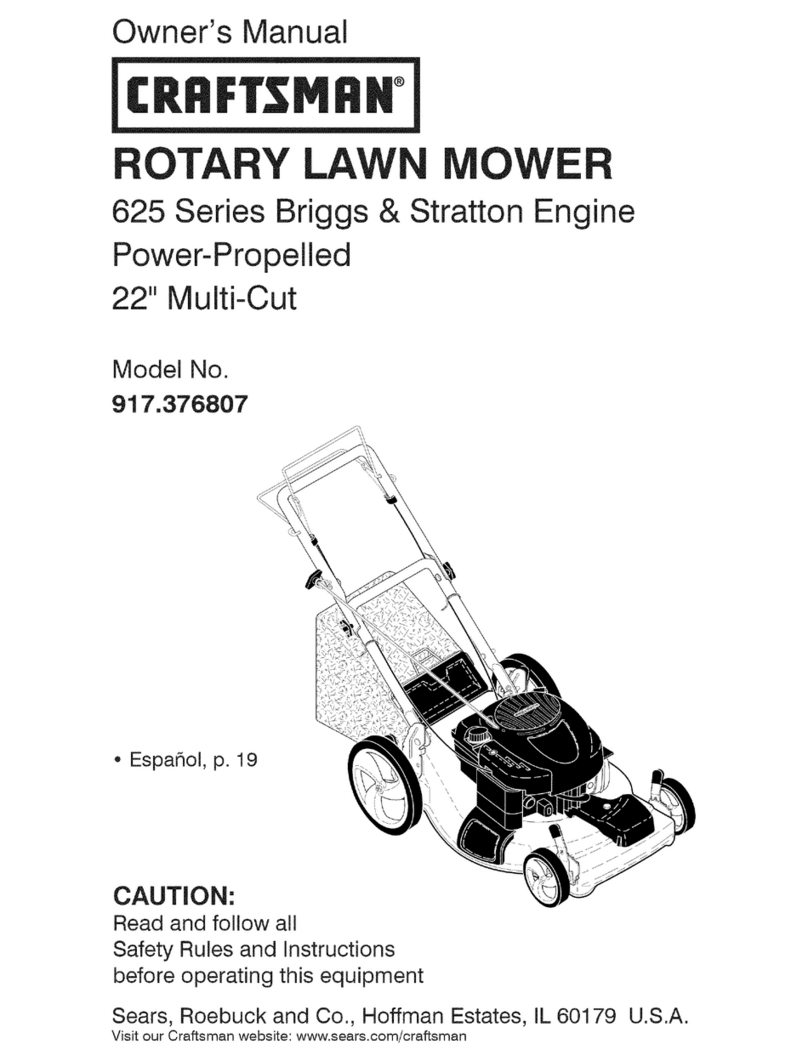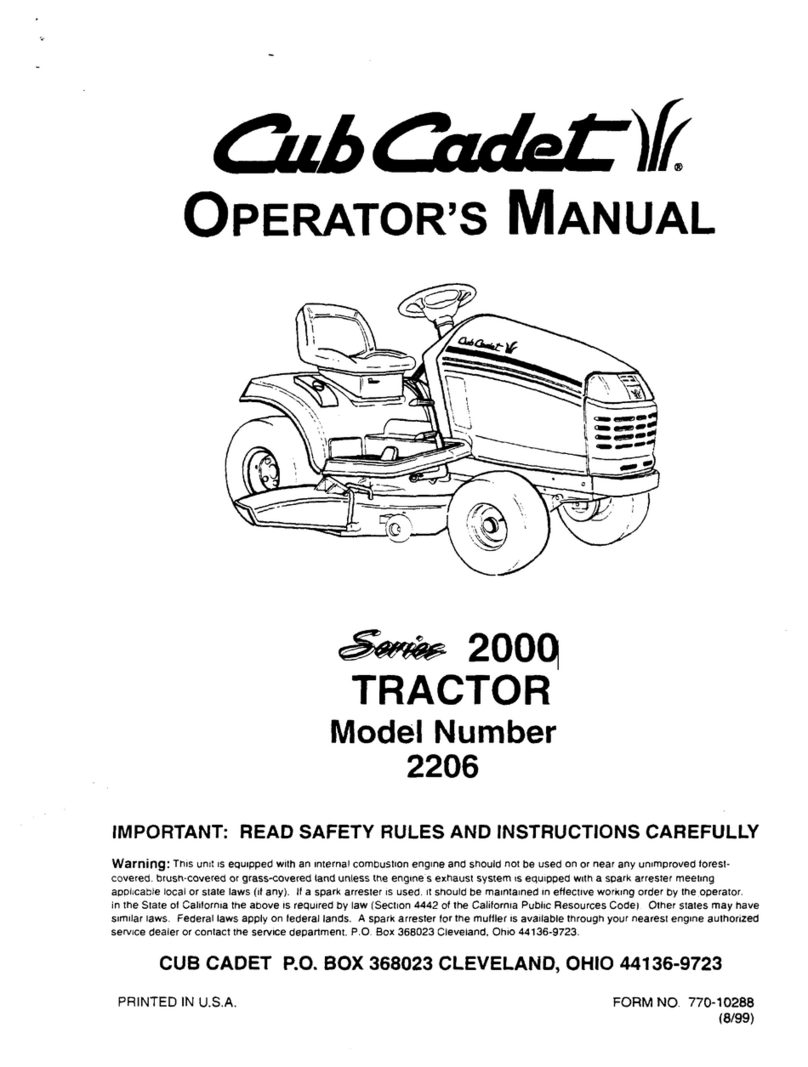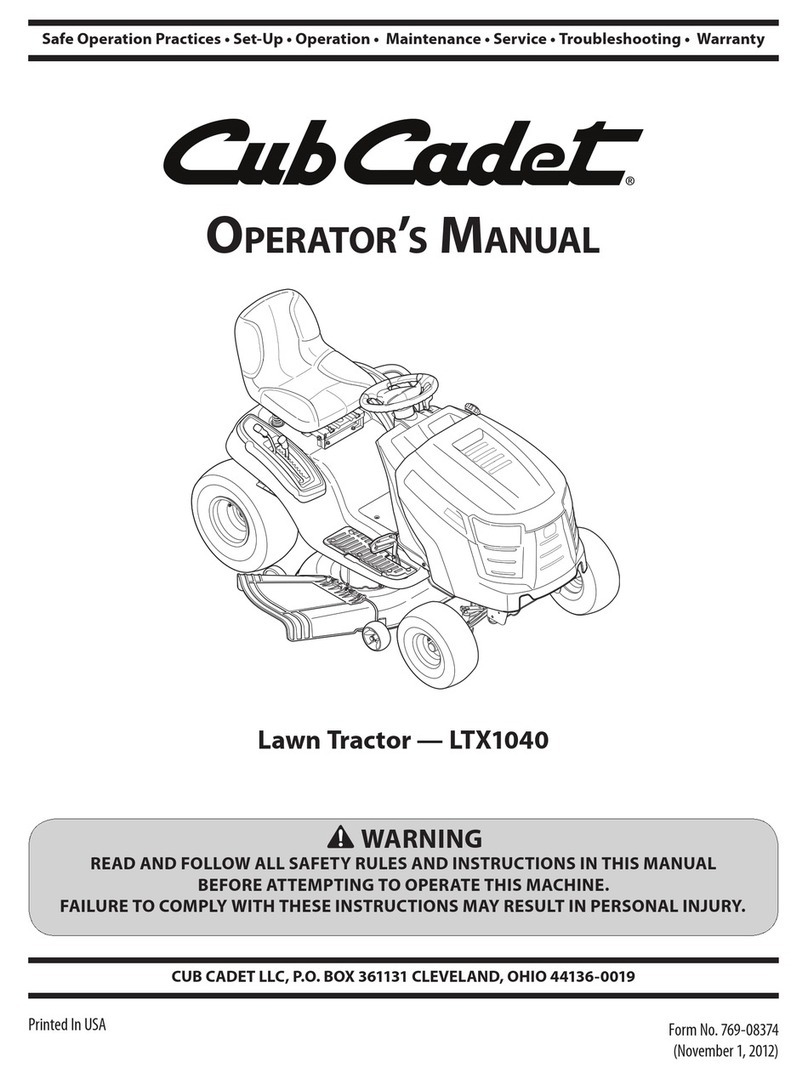
121365 2-3 REV B
•Allow the mower, especially the engine, to cool
before storing inside a building.
Always wear adequate eye protection when:
•servicing the hydraulic system
•servicing the battery
•grinding mower blades and removing accumu-
lated debris.
Never attempt to make any adjustments or repairs to
the mower drive system, mower deck or any attach-
ment while the engine is running or deck clutch is
engaged.
Exercise caution when releasing spring tension from
any of the belt idlers or when working with any of the
deck lift components.
Never work under the machine or attachment unless it
is safely supported with jack stands.
•Make certain machine is secure when it is raised
and placed on the jack stands.
•The jack stands should not allow the machine to
move when the engine is running and the drive
wheels are rotating.
• Use only certified jack stands. Use only appropri-
ate jack stands, with a minimum weight rating of
2000 pounds (907 kg) to block the unit up.
•Use in pairs only.
•Follow the instructions supplied with the jack
stands.
Keep nuts and bolts tight, especially the blade attach-
ment bolts. Keep equipment in good working condi-
tion.
Never tamper with safety devices. Check their proper
operation regularly.
Exercise caution when working under the deck as the
mower blades are extremely sharp. Wrap the blade(s)
or wear gloves and use extra caution when servicing
them.
Use only genuine Big Dog®Mowers replacement parts
to ensure that original standards are maintained.
•The mower may not comply with the appropriate
safety standards if aftermarket parts, accesso-
ries, or attachments are used.
Maintenance Precautions
Avoid Fire Hazards
Be prepared if an accident or fire should occur. Know
where the first aid kit and the fire extinguishers are
located and how to use them.
Provide adequate ventilation when charging batteries.
Do not smoke near battery.
Never check fuel level with an open flame.
Never use an open flame to look for leaks anywhere on
the equipment.
Never use an open flame as light anywhere on or
around the equipment.
When preparing engine for storage, remember that fuel
stabilizer is volatile and therefore dangerous. Seal and
tape openings after adding the inhibitor. Keep con-
tainer tightly closed when not in use.
Inspect electrical wiring for worn or frayed insulation.
Install new wiring if wires are damaged.
Prepare For Emergencies
Be prepared if a fire starts.
Keep a first aid kit and fire extinguishers available.
Keep emergency numbers for doctor, ambulance ser-
vice, hospital, and fire department near the telephone.
Prevent Battery Explosions
Battery posts, terminals, and related accessories con-
tain lead and lead compounds, chemicals known to the
State of California to cause cancer and reproductive
harm. Wash hands after handling.
Charge batteries in a well-ventilated open area, away
from sparks and flames. Unplug charger before connect-
ing or disconnecting from battery. Wear protective cloth-
ing and use insulated tools.
Avoid skin and clothing contact with battery acid.
•Always wear eye protection when checking the
battery. Acid can cause serious injury to skin and
eyes. If contact occurs, flush area with clean
water and call a physician immediately. Acid will
also damage clothing.
•Do not drink the battery electrolyte.
•Do not allow open flame near the battery when
charging.
•Hydrogen gas forms inside the battery. This gas
is both toxic and flammable and may cause an
explosion if exposed to flame. Always disconnect
the negative (black) battery cable(s) before dis-
connecting the positive (red) cable(s). Always
connect the positive (red) battery cable(s) before
connecting the negative (black) cable(s).
•Do not overfill the battery.
•Electrolyte may overflow and damage paint, wir-
ing or structure. When cleaning the battery, use
soap and water. Be careful not to get soap and
water into the battery. Clean the battery termi-
nals with a solution of four parts water and one
part baking soda when they become corroded.
Shorts caused by battery terminals or metal tools
touching metal mower components can cause sparks.
Sparks can cause a battery gas explosion which will
result in personal injury.




















